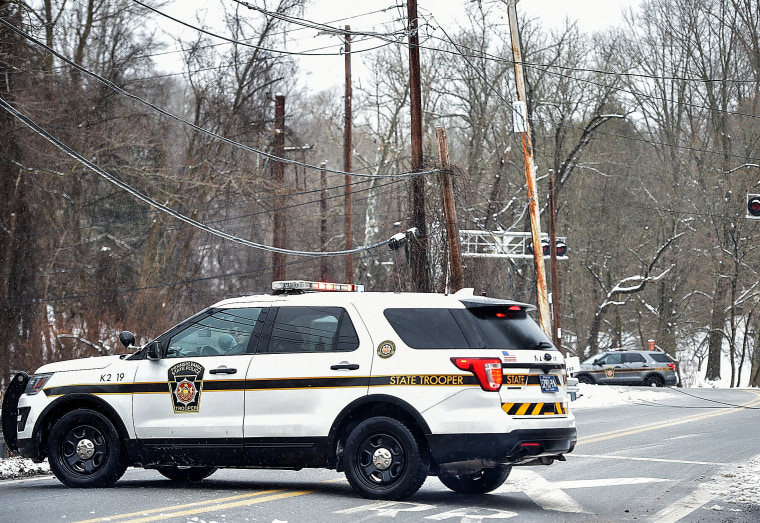This article was produced in partnership with Spotlight PA, a collaborative newsroom that produces investigative journalism for Pennsylvania.
HARRISBURG, Pa. — Pennsylvania State Police troopers who kill or injure someone should not be investigated by their own agency, and an independent prosecutor should review the case, according to a recommendation approved Friday by a state oversight panel.
The proposed changes come amid increased scrutiny of the nearly unchecked power of local district attorneys in Pennsylvania to decide whether to bring charges against police officers, despite the fact that those prosecutors work closely with the police departments they oversee.
The recommendation by the State Law Enforcement Citizen Advisory Commission, which was created by Gov. Tom Wolf after the May 2020 murder of George Floyd, follows calls from the parents of Christian Hall, a 19-year-old Chinese American killed by the Pennsylvania State Police, for their son’s death to be independently investigated.
Video obtained by Spotlight PA and NBC News shows that Hall had his hands in the air when troopers shot and killed him near Stroudsburg in December 2020. The shooting was investigated by the State Police and ruled justified by the Monroe County district attorney, who works closely with the agency.
The Citizen Advisory Commission made its recommendation Friday based on a different use-of-force incident: a 2016 shooting in Beaver County in which troopers consulted with the county district attorney before shooting a suspect involved in an hourslong standoff.
That same prosecutor then later reviewed the case and ruled the shooting was justified.
The State Police have defended their handling of both cases, as have the district attorneys in Beaver and Monroe counties.
The Citizen Advisory Commission, which has oversight of the State Police and other law enforcement agencies under the governor’s jurisdiction, said the recommendations for independent investigations and prosecutions are designed to restore the community’s trust in police.
Kelley Hodge, a commissioner and former Philadelphia district attorney, pointed out that the commission subcommittee found the State Police had acted quickly and fairly in its investigation of the 2016 case, but that “there was an inherent suspicion … or conflict of interest that could arise” based on the circumstances.
Elizabeth Pittinger, a commission member and longtime police oversight advocate, said the 2016 incident was disturbing, with the actions of the prosecutor “almost approaching arrogant.”
“It raises so, so many issues,” she said.
The recommendations are significant, but the degree to which the State Police and other agencies will cooperate and what happens next is unclear.
Wolf’s executive order creating the commission states that it will prepare a report of its findings on the cases it reviews and include recommendations that are approved by the full panel.
Then state agencies under its jurisdiction, such as the State Police, “will review the recommendations and provide the commission with responses and updates regarding implementation of recommendations, as appropriate,” the order states.
A spokesperson for the State Police, Cpl. Brent Miller, said the agency will take this and other recommendations put forth by the commission “under advisement.” Miller said State Police helped train commission members to make meaningful recommendations.
“PSP appreciates the dedication and time these citizens have volunteered to improving public safety and fair treatment, and addressing inequities in law enforcement,” he wrote by email.
The State Police could agree to change its policies and not investigate incidents involving troopers, but that would require determining who else would do it. Removing district attorneys from overseeing fatal State Police killings in their jurisdiction would likely take legislation. State Sen. Art Haywood, a Democrat whose district includes part of Philadelphia, has proposed a bill that would give the state attorney general this power.
Currently, the attorney general can only intervene at the request of a district attorney.
In recent years, other states have adopted similar strategies to remove police and prosecutors from investigating use-of-force incidents.
In New Jersey, the attorney general’s office in 2019 established a public integrity and accountability office, which is responsible for selecting independent investigators, or performing investigations itself, into incidents involving deadly force or serious injury.
In Delaware, the state Division of Civil Rights and Public Trust investigates use-of-force incidents by police.
And the Maryland state Legislature this year passed sweeping police reforms that include tasking a division of the state attorney general’s office with investigating all fatalities involving police officers.
